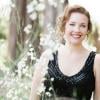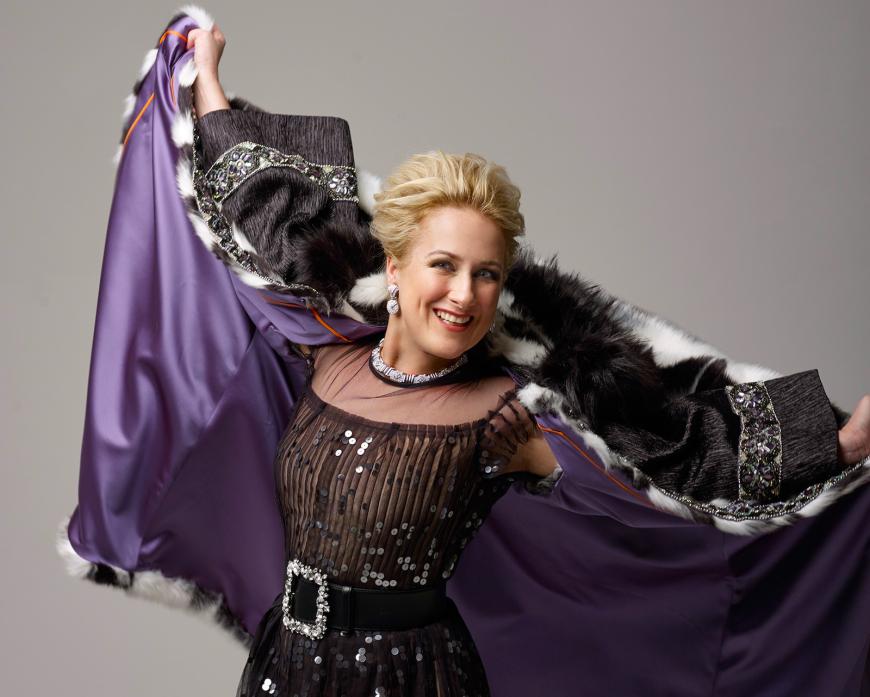
Knowing she wanted to be an opera singer at the tender age of 12, German-born, Switzerland-based soprano Diana Damrau has never looked back. Indeed, having performed on the world’s leading opera and concert stages for two decades, the singer, who turns 51 in May, has had an enviable career. After training at the Hochschule für Musik Würzburg, Damrau went on to sing a vast repertoire that spans both lyric soprano and coloratura roles in such masterpieces as Roméo et Juliette and Manon.
Among the great houses Damrau has performed in are La Scala, Bavarian State Opera, and Royal Opera House, where she assayed the title role in Lucia di Lammermoor. She was also the first singer in Metropolitan Opera history to tackle the characters of Pamina and Queen of the Night in different performances of the same run of Mozart’s The Magic Flute. And, since her 2005 debut at the Met as Zerbinetta in Strauss’s Ariadne auf Naxos, Damrau has bowed in seven roles there, with The New York Times’ Zachary Woolfe writing in 2015 that Damrau had “become perhaps the Met’s most daring diva.”
The artist is also no stranger to snagging awards: In 2008, Damrau was named Singer of the Year by Opernwelt magazine; in 2014 she was honored with “Best Female Singer” at the International Opera Awards; and in 2020, Damrau not only received the 15th-annual Opera News Awards, she also had an asteroid bear her name. Talk about celestial karma!
As for vinyl, Damrau’s recordings for the Warner Classics/Erato label began with Arie di Bravura, a collection of Mozart and Salieri arias. Subsequent discs feature, among other composers, Strauss, Liszt, and Schumann. And then there’s Tudor Queens, in which Damrau assumed the roles of three different royals in Gaetano Donizetti’s great trilogy, Anne Boleyn, Mary, Queen of Scots, and Elizabeth I.
But this queen is also a working mother of two young boys, ages 9 and 11. Having married the French bass-baritone Nicolas Testé in 2010, Damrau performs with her husband whenever she can and recently appeared in recital with him and pianist Maciel Pikulski at The Broad Stage in Los Angeles. Keeping a rockstar-like schedule, Damrau took the time to chat by phone about her career, life on the road, and what lies ahead for her.
How does one decide to become an opera singer at age 12? Were you precocious, curious, or just plain smitten with the art form?
We are quite a musical family [and] there are some professional musicians, but no singers. I thought for the first time when I was 12, I saw [the 1983 Zeffirelli film of] La traviata. Teresa Stratas was singing and that was for me like The Red Shoes for a ballet dancer. In that moment, I figured out that opera is the most beautiful thing for me on earth, what people can do with their bodies and voices and telling their wonderful stories.
I was influenced by the most fantastic singing actress; seeing [Teresa Stratas] as Violetta opened up a new world for me. I prayed to god to be able to study that, to have some talent. While I danced and sang as a child [and] played piano, classical singing was really something for me.
You recently toured with tenor Jonas Kaufmann throughout Europe and also sang with your husband in Santa Monica. How do you decide on a recital program and what are the benefits of performing with your spouse?
First of all, planning a recital program is always a special case because we need to see [if we] have been at that [venue] already and what have you performed. For instance, now, with my husband, we wanted to do a real recital including some opera, operetta and a little bit of musicals — a mixed salad, insalata mista. It’s all about love and dealing with feelings.
We wanted to do a little bit also regarding the operetta. It’s a little bit nostalgic and also a little bit it makes you think. Then we have My Fair Lady and Anna Bolena. It’s quite wild. Regarding the recital with Jonas, we did four years ago a big tour in Europe. I think it was 12 or 14 concerts and Helmut Deutsch was our pianist. It was an incredible journey, a fantastic journey, to be able to concentrate on repertory [including] Schumann and Brahms. To see it get deeper was an amazing feeling and we’re planning a third tour. It’s wonderful.
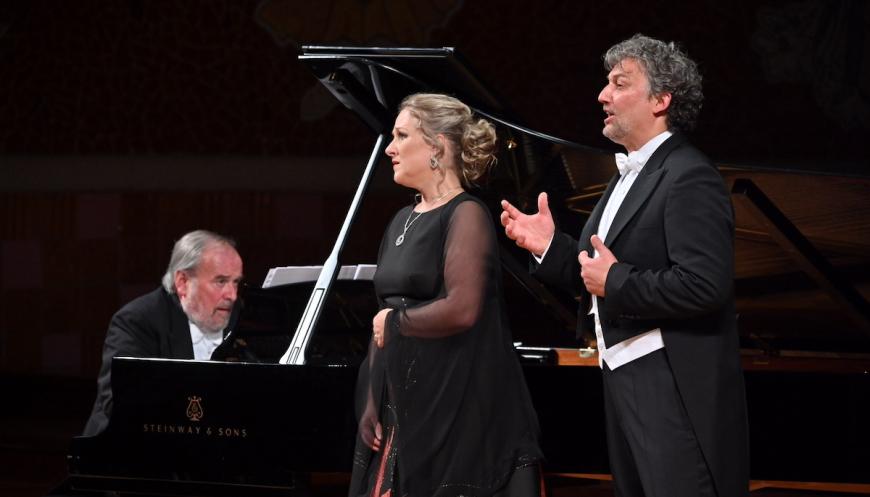
The benefit of performing with my husband is that we love each other and have the chance to be onstage together. It’s also a holiday for the boys. We’re able to take them with us and it’s nice to be able to perform and travel altogether. We took them with us until they were 7 or 8 years, but we try to keep them at school as long as possible. It’s better that they stay with their classmates.
But it’s been fantastic, us being together, performing together. I can hear the beautiful voice of my husband and enjoy when he’s onstage. Singing duets, it’s a different form of communication. It’s art and we become different people onstage, but we know each other personally, as well. It’s a nice and deep connection.
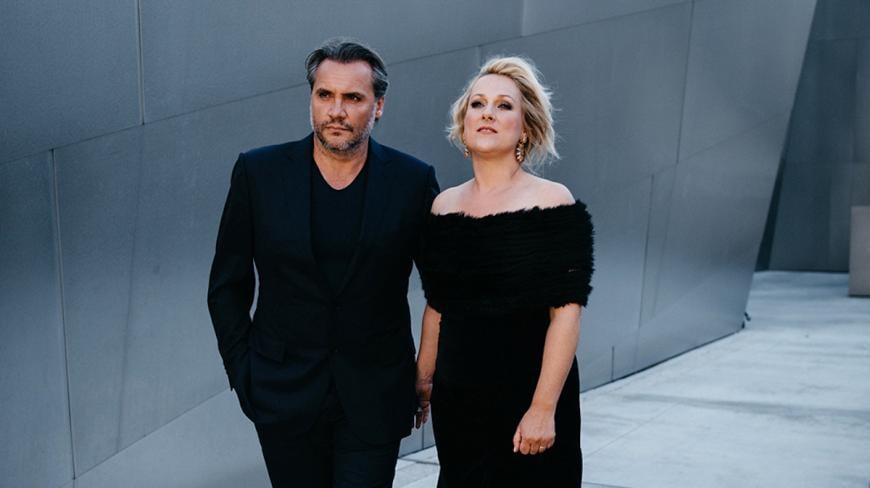
You also sang Lerner and Loewe’s “I Could Have Danced All Night” from My Fair Lady. Would you like to do a full-blown musical?
In my first years of engagements, I did [numerous] times My Fair Lady, and this during the normal season of the opera house [when] I was engaged doing Der Frieschütz, Hansel and Gretel, and Queen of the Night — all next to My Fair Lady. It was cool. I also sang the first German performance of Sweeney Todd. I’m open for that, staying for a while in one place. The boys could go to school there and I’d perform a nice musical.
In 2014, you sang the role of Leïla in a production of Bizet’s The Pearl Fishers. Directed by Lotte de Beer and performed at Theater an der Wien, it was staged as a kind of jungle-camp reality TV show and dubbed, Perlenfischer: The Challenge. What was that like and do you prefer traditional or more modern mountings?
I love The Pearl Fishers, especially this was one of the best modern productions I ever did. It was so easy because it didn’t have to twist things around. It just worked out. My husband was [the high priest Nourabad] of the show and there were TV screens. This was really, really brilliant. I must say, when it makes sense, I like a modern production, but I still I go for beauty and first of all. for the music.
When the staging disturbs the music then it makes no sense for me. When you twist things around and then at the end, you heard the masterpiece and it gives no insight or just for the sake of the stage director’s therapy, then no. But we have to talk, we have to be open. It’s still art. If there’s something we can do to make people think about what happens nowadays, I think it’s great, but for me, myself, I think beauty is so important.
Beauty and music. This is medicine for our soul. Most of the operas are tragic, dramatic, it’s like watching the news, but it still can be shown with beauty. Through beauty, through the beauty of music, which touches different parts in our soul, that’s why I do this. That’s why I want to be a performer — to tell these stories, to make people feel, to open up and react.
Woman to woman, what are your considerations in concert clothes, and as for opera garb, I understand that Versace once designed a gown for Dame Kiri Te Kanawa in a San Francisco Opera production of Capriccio that weighed 75 pounds!
When I do normal concerts, I do everything myself. I’m with Talbot Runhof, a German fashion brand and they have a very large section with evening dresses and long gowns. It’s not the ones for models, it’s the dresses everybody can wear with every type of body. They help me and I’m happy to be working with them. I’m allowed to create myself.
For me, what’s important in opera is the character, the theme. It should match and enhance the character of the role in the situation. I was seen in a [Met Stars Live] broadcast during COVID in [Caserta] Italy in a big church with [tenor] Joseph Calleja. We did all kinds of arias and duets. For Semiramide, I was a golden queen and wore yellow. For Tosca” I had blood red, and something blue for Carmen. I like playing around with colors. That’s the nice side of being an opera singer, to be able to wear these beautiful clothes, but the Versace costume, I would not choose that for a concert.
Since you knew at a young age that opera would be your life’s work, what advice do you have for aspiring opera singers?
Enjoy your singing and don’t stress. Stay focused, but if things don’t work out, something different will work out. Your place is waiting for you, but keep up the good work. I think this is the most important because then you open up, then you can reach people. When you worry, “Oh, no, this note didn’t come out,” and when you’re scared and stressed, you must shrink yourself, you go to the psychiatrist. This is self-shrinking.
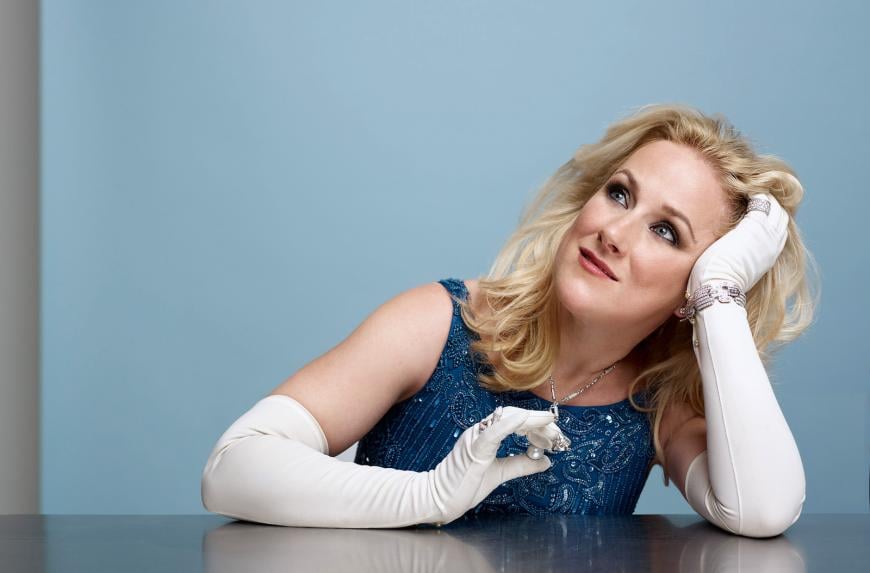
How do you regard the state of opera today — are audiences getting younger or older — and where do you see yourself in the next five to 10 years?
I think there is a lot of interest for opera and there’s also a lot of young audiences. When you’re in different countries, for instance, in Asia or South America, the audience is much younger, that’s what I have experienced.
[Regarding my future], hopefully, I’ll be on stage, singing more songs and doing wonderful recitals and singing the music I want to sing, which will be appropriate for me at that time. Enjoy each stage you’re in and make the best, because life has its ups and downs and you must find out for yourself what is best for you. Everybody’s different and everybody needs to find his own balance.



